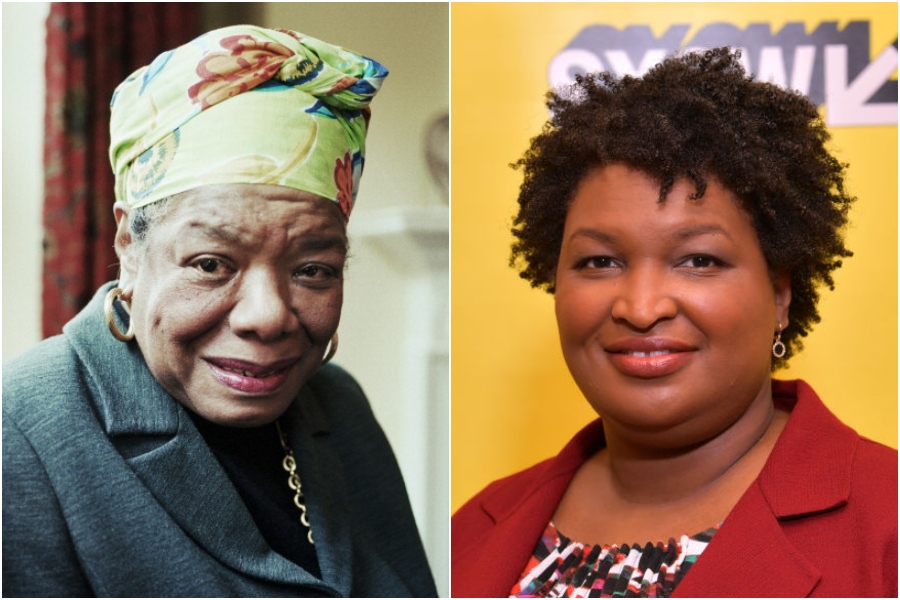
Source: Martin Godwin/ Getty; Danny Matson/Getty / Getty
Throwback Thought aims to create commentaries and spark dialogues on past pop cultural moments as they relate to things happening in today’s society. In the first edition of the series, Madame Noire explores a past interview of Maya Angelou from the book Black Women Writers at Work regarding how she felt protest was “inherently” linked to the writings she produced. As it relates, we also discuss how Black women — such as Stacey Abrams — exemplify that ethos through their own groundbreaking work and successes.
Originally published in 1983, Black Women Writers at Work is a collection of interviews curated, conducted, and written by Claudia Tate. As a literary critic and a Black woman herself, Tate interviewed 14 of the most prolific Black women writers of the 20th century about their works, how their projects were received by various audiences, connections between their work and personal lives, and their respective creative processes.
All that being said, the first feature in the book is Tate’s conversation with Angelou — an autobiographical writer and poet (amongst many other things) who has given us poems like I Know Why Caged Birds Sing, Phenomenal Women, and Still I Rise. As per the book, Tate asked Angelou amidst their conversation, “How do you integrate protest in your work?”
In her response, Angelou began by saying, “Protest is an inherent part of my work. You can’t just not write about protest themes or not sing about them. It’s a part of life. If I don’t agree with a part of life, then my work has to address it.” After a short anecdote, Angelou finished answering the question by saying, “My work is intended to be slowly absorbed into the system on deeper and deeper levels.”
What’s loved about Angelou’s response is that it didn’t just apply to how protest is integrated into the work of a writer. It truly speaks to the work all Black women do every day — regardless of their profession. When reading those words from Angelou, someone who often comes to mind is former Georgia House Democratic Leader Stacey Abrams. As a Nobel Peace Prize nominee, and an influential player in the Georgia state and national 2020 political elections, Abrams is such a good example of someone who isn’t a writer exemplifies how protest through work is “inherently” a part of everything a Black woman does. Additionally, Abrams’ journey also speaks to Angelou’s testament of producing work that’s “slowly absorbed into the system on deeper and deeper levels” for the greater good.
Despite losing the 2018 election for Georgia governor, Abrams succeeded in her 10-year mission to flip Georgia blue — a feat that helped Joe Biden win the 2020 presidency, in addition to aiding Raphael Warnock and Jon Ossoff gain seats in the Senate back in January. Despite facing some hate along the way, through her work Abrams has enacted change to create the local, national, and global realities she wanted to see. Truly, that’s what it means to be a Black woman “at work.”
Because our very existence challenges standards of sexism, anti-blackness, colorism, and general injustice on a global level — for better or for worse — the work of Black women is “inherently” tied to protest. Fortunately though, we still stand and fight for what’s right through the work that we do. Despite protesting being associated with “the struggle” or being subjected to taking the hard road ahead, it also means that freedom, acceptance, equality, and betterness are all visible somewhere on the other side. Angelou’s, Abrams’, and the work of Black women all over the world can attest to that.









